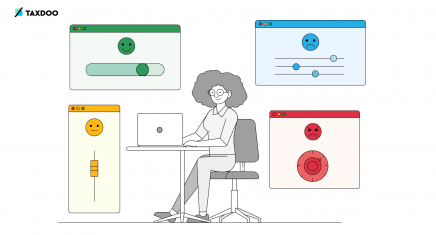
8 Things You Need to Know About Becoming an Engineering Manager
More articles

- 15 March 2023
- Taxdoo Engineering
Emotional Intelligence – A Toolkit for Software Engineering
Want to thrive in tech? It might come as a surprise that hard skills alone are not enough to progress your career as a developer. At Taxdoo, we believe that nurturing Emotional Intelligence (EI), as well as technical skills, is the key to a healthy, productive environment. Why care about EI? The stereotype of a […]

- 15 March 2023
- AJ Cole
Migrating from AWS Lambda to AWS ECS: Benefits and Challenges
AWS Lambda is a powerful service that provides a hassle-free way to run our code in the cloud without needing to concern ourselves with the underlying infrastructure. At Taxdoo, we rely on Lambda for a vast array of services, as it streamlines our development process and ensures our focus remains on delivering innovative solutions. However, […]

- 15 March 2023
- Maria Canero
EI in Software Engineering | How to Improve Code Quality
Software engineering is all about coding. Right? Wrong. Well, just a little bit at least. Software engineering is way more than writing lines of code. Problem-solving, understanding complex business systems, specifying the scope of project implementation, defining contracts between clients and customers, coordination (for resource allocation, deployments, interlinked pieces of work), prioritizing, communication between colleagues […]